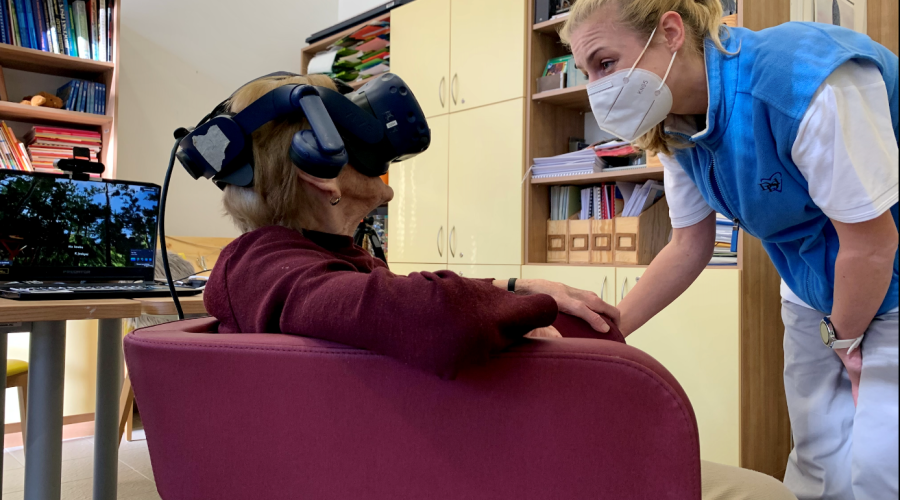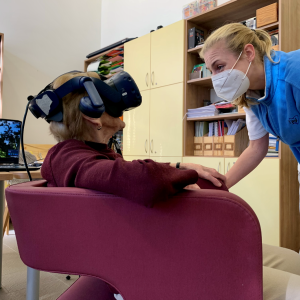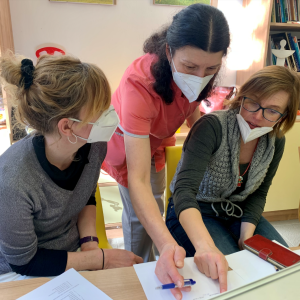Virtual reality experience can support the need for dignity

The unique Czech project Virtual Reality in Keeping the Elderly Active (VIREAS) focused on the use of virtual reality as a means of improving the quality of social services and work with the elderly.
The project was co-financed with state support from the Technology Agency of the Czech Republic under the Éta Programme. The project was implemented by the Faculty of Theology of the University of South Bohemia in České Budějovice together with the Czech Institute of Informatics, Robotics and Cybernetics of CTU and the Association of Virtual and Augmented Reality s.r.o. The aim of the solution was to develop a set of virtual experiences designed especially for residents of homes for the elderly and a methodology for activation workers.
Studies have shown that a well-designed virtual experience can support the fulfilment of some of the key needs of older people, such as the need for dignity or continuity and meaning in their life story. ‘In virtual reality, a person can return to places that are connected to their family, profession or hobbies, but also see places that were inaccessible to them for financial or political reasons. In doing so, he naturally talks about his life and his values.’ says Suchomelová, FTH USB.
The development of virtual experiences required, among other things, the acquisition of hundreds of 360° images that map the entire Czech Republic. It turns out that the quality of the photos is also affected by details such as the height of the tripod. ‘For users – clients of nursing homes, who often have movement limitations, it is necessary to capture reality from a seated position, for example, so that the result looks natural,’ adds Martin Kotek from the Virtual and Augmented Reality Association. Thanks to the number of photographs, it was possible to put together a variety of themed trips. Users can thus travel not only to the countryside of interesting cities, but also focus on sports, spas, pilgrimage sites or cultural monuments, depending on their interests. A key finding of the research was also the preference for virtual environments where natural movement can be seen: people in the park, on a bike, shopping, mothers with children.
The project team also focused on creating conditions under which users with vision, hearing or fine motor difficulties can enjoy virtual reality. ‘The lighting conditions, the quality of the accompanying sound and photographs, but also the possibility of parallel control, when the senior is assisted in moving in the scene non-violently by an accompanying person, for example an activation worker,’ adds doc. Lenka Lhotská from the Czech Institute of Informatics, Robotics and Cybernetics.
In the course of the project, the researchers came to a crucial conclusion: for best results and improved mental wellbeing, the virtual experience must be combined with real social contacts. Suchomel summarises: 'The older person must be able to share the virtual reality experience. In a group of other residents, with an activation worker or with family. The virtual experience can be followed by an activity aimed at memory training or reminiscence. If the use of virtual reality is combined with social contact, it can undoubtedly improve the quality of life of geriatric clients.’
The objectives and outputs of the project were achieved. A set of virtual experiences has been created for future users – the older users and the Virtual Reality (not only) in nursing homes methodology for the staff. The methodology and information about the set of virtual experiences are available on the VIREAS.cz website.
Link to the project video: YouTube FTH USB.
Contact:
Mgr. Věra Suchomelová, Th.D., Department of Pedagogy, Faculty of Education, JU, Phone: +420 389 033 511,

